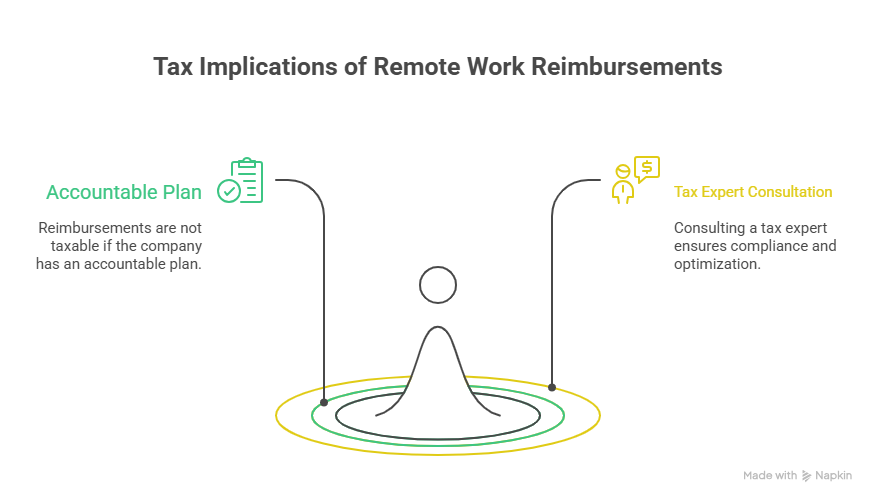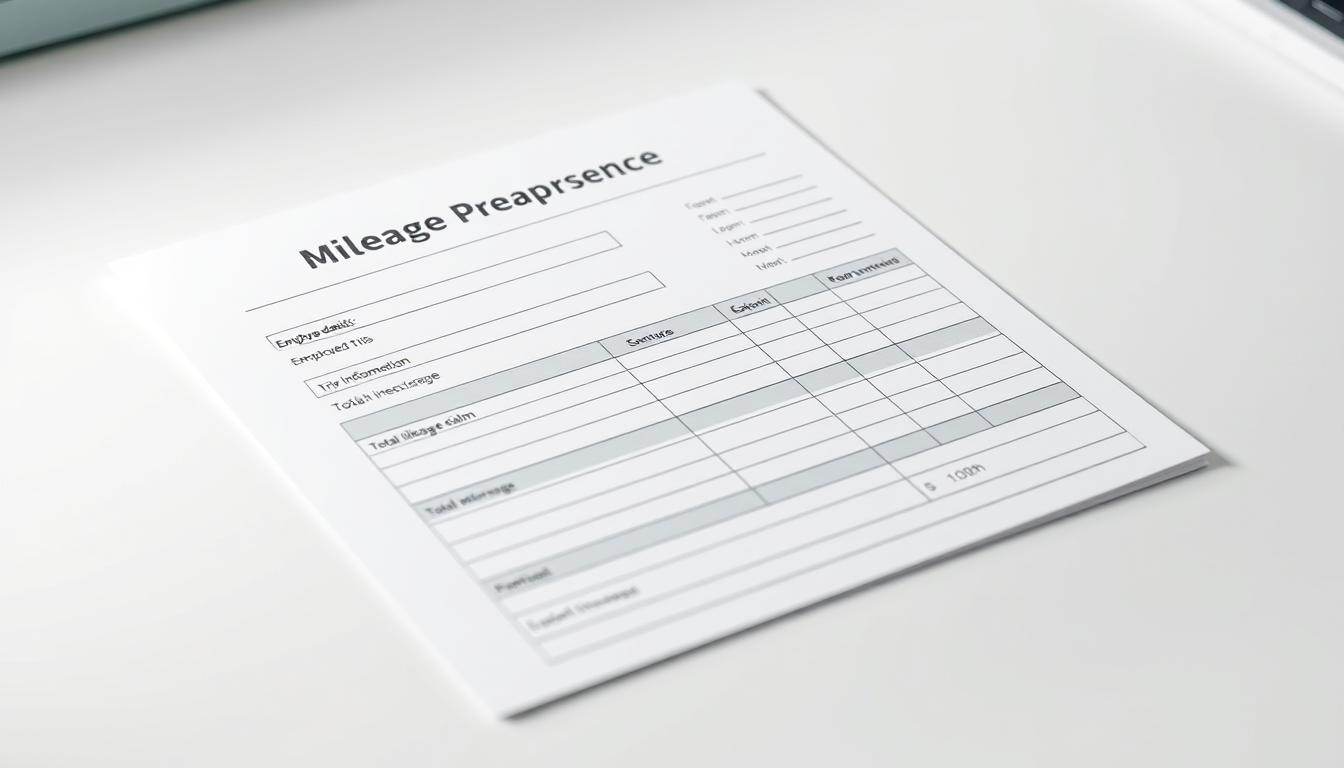One startlingly high percentage of workers are still working from home as 2025 approaches. This change has made it more important than ever to comprehend the rules governing costs associated with working from home.
Did you know that every year, millions of dollars in allowable expenses are not claimed? The 2025 reimbursement guidelines are intended to assist remote workers in understanding their entitlements and preventing them from losing out on benefits.
Important topics are highlighted in the revised policy, such as the reimbursement procedure and allowable expenses. You can maximize your claims and take advantage of all the benefits that are available to you by becoming familiar with these guidelines.
2025 Remote Work Reimbursement Policy Updates
As the year begins, there are important changes to the 2025 remote work reimbursement policy that remote workers should be aware of. By giving more precise instructions on which expenses qualify for reimbursement, these modifications aim to improve the experience of working remotely.
Key Changes in Federal Guidelines
In 2025, there were major revisions made to the federal guidelines for reimbursement of remote work.The inclusion of a greater range of home office supplies and utilities in the list of allowable expenses is one of the most significant modifications. This modification reflects the need for a more thorough approach to reimbursement as well as the changing nature of remote work.
The significance of documentation and record-keeping is also emphasized in the revised policy. In order to guarantee seamless reimbursement procedures, remote workers must now keep thorough records of their expenses.
| Category | 2024 Policy | 2025 Policy |
|---|---|---|
| Home Office Equipment | Limited to $1,000 | Expanded to $2,000 |
| Utilities | Not Covered | Up to $500 |
| Internet Expenses | Partial Reimbursement | Full Reimbursement |
State-Specific Policy Variations
Individual states have implemented their own modifications to the remote work reimbursement policy, even though the federal guidelines serve as a baseline. California, for example, has enacted a more liberal reimbursement policy that covers a greater range of costs for remote workers.
To optimize their reimbursement benefits, remote workers must become familiar with the specific policies of their state. The disparities in state laws emphasize how crucial it is to remain up to date on local laws.
Employers and employees must both be aware of these changes in order to maintain compliance and take full advantage of the new policy’s benefits. Remote workers can handle the reimbursement process more skillfully if they keep themselves informed.
Eligible Expenses Under the 2025 Policy
Knowing which expenses qualify for reimbursement is crucial as we examine the 2025 remote work reimbursement policy. The policy is intended to assist remote workers by providing coverage for a variety of home office-related costs.
Home Office Equipment and Furniture
Remote workers are eligible to deduct costs for furniture and equipment for their home offices, such as computers, desks, and chairs. The cost of maintaining or repairing current equipment is also included in this category.
Utilities and Internet Expenses
Internet and utility costs make up a sizable amount of the costs associated with working remotely. Employees may deduct a portion of their internet, gas, and electricity costs as allowable expenses. Maintaining precise records of these costs is crucial.
Software and Subscription Services
Software and subscription services required for remote work are also covered by the 2025 policy. This covers project management software, productivity apps, and other subscriptions that make working from home easier.
Professional Development Resources
The 2025 policy encourages spending money on resources for professional development. Employees who work remotely may deduct costs for professional memberships, online courses, and other tools that improve their abilities and output.
Remote workers can make sure they are utilizing the remote work expense reimbursement policy to its fullest potential by being aware of these categories. The reimbursement process can be streamlined by maintaining thorough records and adhering to the rules outlined in the policy.
Submitting Claims Through Your Remote Work Reimbursement Process
It takes focus and a thorough comprehension of the rules to submit claims for remote work expenses. From obtaining the required paperwork to comprehending the tax ramifications of your reimbursements, there are a number of important steps in the process.
Required Documentation for Expense Claims
You must submit complete documentation in order for your claim to be accepted. This usually includes invoices, purchase receipts, and expense logs. For example, you’ll need to present the sales receipt and any warranty paperwork if you bought a new laptop for work.
- Make sure your invoices and receipts are thorough and contain the date, amount, and description of the expenditure.
- Bank statements: These are useful for confirming spending, particularly when it comes to regular payments like internet service.
- Expense Logs: Maintaining a record of your spending can keep you organized and guarantee that you don’t overlook any claims that qualify.
Tracking and Organizing Home Office Expenses
A seamless reimbursement process depends on your home office expenses being tracked and organized effectively. This task can be made simpler by using apps or digital tools made specifically for tracking expenses.
| Expense Category | Examples | Tips for Tracking |
|---|---|---|
| Home Office Equipment | Laptops, printers, desks | Use a spreadsheet to log purchases |
| Utilities and Internet | Electricity, internet bills | Set up automatic expense categorization |
| Software and Subscriptions | Productivity software, cloud storage | Monitor subscription renewals |
Tax Implications of Remote Work Reimbursements
To prevent any unforeseen tax obligations, it is crucial to comprehend the tax ramifications of reimbursements for remote work. Reimbursements for work-related expenses that are recorded under an accountable plan are typically not regarded as taxable income.
Accountable Plan: Under an accountable plan, staff members must provide proof of spending and reimburse any overspending. Reimbursements are usually not taxable if your business has an accountable plan.
It’s best to speak with a tax expert or financial advisor who is knowledgeable about remote work policies in order to optimize your reimbursements and adhere to tax laws.

Conclusion
Maximizing the benefits accessible to remote workers requires an understanding of the 2025 remote work reimbursement policy. Employees can make sure they claim the expenses they are entitled to by keeping up with the most recent changes to the policy regarding remote work expenses.
As previously mentioned, the 2025 policy incorporates significant revisions to federal regulations as well as state-specific policy differences. Equipment and furnishings for the home office, utilities, internet costs, software, and resources for professional growth are all covered. The reimbursement process can be streamlined by becoming familiar with these categories.
Maintaining correct records and the necessary paperwork for expense claims is crucial to maximizing the benefits of the remote work policy best practices. This streamlines the reimbursement procedure and aids in comprehending the tax ramifications of reimbursements for remote work.
It’s critical for both employers and employees to stay up to date on the most recent regulations and best practices as remote work continues to develop. By doing this, they can maximize the benefits offered and successfully navigate the remote work expenses policy.
FAQ
What is the remote work reimbursement policy for 2025?
The rules and allowable costs that remote workers can deduct are described in the 2025 remote work reimbursement policy. It ensures compliance and maximizes benefits by providing updates on state-specific variations and federal guidelines.
What expenses are eligible for reimbursement under the 2025 policy?
Expenses for software and subscription services, professional development materials, utilities and internet costs, and home office furnishings and equipment are all covered. Reimbursement requires that these costs be accurately documented.
How do I submit a claim for remote work expenses?
You must keep track of your expenses throughout the year and provide the necessary paperwork, such as invoices and receipts, in order to file a claim. It’s also critical to comprehend how reimbursements affect taxes.
Are there any state-specific variations in the remote work reimbursement policy?
Indeed, in order to comply with their local laws, several states have changed or adjusted the federal guidelines. To guarantee compliance, it is imperative that you become acquainted with the particular regulations in your state.
Can I claim professional development resources as part of my remote work expenses?
The 2025 policy does allow for reimbursement of professional development resources. This covers classes, training plans, and additional materials that improve your abilities and output.
How do I track and organize my home office expenses?
Use accounting software or a specialized spreadsheet to keep track of and arrange your spending. This will guarantee that you don’t overlook any allowable expenses and help you maintain accurate records.
What are the tax implications of remote work reimbursements?
Although reimbursements for remote work are typically not regarded as taxable income, it is still important to speak with a tax expert to fully grasp the implications for you.
Can I claim utilities and internet expenses as part of my remote work reimbursement?
Yes, the 2025 policy allows for reimbursement of internet and utility costs. Keep track of all of your spending, including invoices and receipts for payments.




